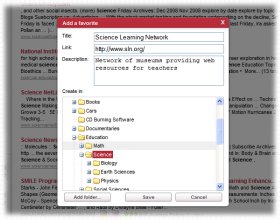|
Education
Web
Viewing 1-3 of 3 total results
Cambodia Post
Belgium Belgium (, ), officially the Kingdom of Belgium, is a state in Western Europe. It is a founding member of the European Union and hosts the EU's headquarters, as well as those of several other major international organizations such as NATO. Belgium covers an area...
on world affairs. 7. Analyze the reasons for the collapse of the Soviet Union, including the weakness of the command economy, burdens of military commitments, and growing resistance to Soviet rule by dissidents in satellite states and the non-Russian Soviet republics. 8....
1
0
on world affairs. 7. Analyze the reasons for the collapse of the Soviet Union, including the weakness of the command economy, burdens of military commitments, and growing resistance to Soviet rule by dissidents in satellite states and the non-Russian Soviet republics. 8. Discuss the establishment and work of the United Nations and the purposes and functions of the Warsaw Pact, SEATO, NATO, and the Organization of American States. 10.10 Students analyze instances of nation-building in the contemporary
53
0
http://www.cde.ca.gov/be/st/ss/documents/histsocscistnd.pdf#page=53
www.cde.ca.gov/be/st/ss/documents/histsocscistnd.pdf#page=53
on world <span class="highlight">affairs</span>. 7. Analyze the reasons for the collapse <span class="highlight">of</span> the Soviet Union, including the weakness <span class="highlight">of</span> the command economy, burdens <span class="highlight">of</span> military commitments, and growing resistance to Soviet rule by dissidents in satellite states and the non-Russian Soviet republics. 8. Discuss the establishment and work <span class="highlight">of</span> the United Nations and the purposes and functions <span class="highlight">of</span> the Warsaw Pact, SEATO, NATO, and the Organization <span class="highlight">of</span> American States. 10.10 Students analyze instances <span class="highlight">of</span> nation-building in the contemporary
products come from? How are people in the world interconnected? Who am I in relation to the world? • Model United Nations, NAFTA, NATO • Internet, Red Cross • Destruction of rainforest • Legal and Illegal Trade (oil, drug, human trafficking) • Irish and Portugu...
1
0
products come from? How are people in the world interconnected? Who am I in relation to the world? • Model United Nations, NAFTA, NATO • Internet, Red Cross • Destruction of rainforest • Legal and Illegal Trade (oil, drug, human trafficking) • Irish and Portuguese relief programs • Local units or chapters b. locating where different nations are in the world in relation to the U.S. b. identifying, describing, and explaining how people are politically, economically, environmentally, militarily, and
6
0
http://www.ride.ri.gov/Instruction/DOCS/CIVICS/RI_Civics_GSEs_MS-_5-8__Final_Version.pdf#page=6
www.ride.ri.gov/Instruction/DOCS/CIVICS/RI_Civics_GSEs_MS-_5-8__Final_Ver...
products come from? How are people in the world interconnected? Who am I in relation to the world? • Model United Nations, NAFTA, NATO • Internet, Red Cross • Destruction <span class="highlight">of</span> rainforest • Legal and Illegal Trade (oil, <span class="highlight">drug</span>, human trafficking) • Irish and Portuguese relief programs • Local units or chapters b. locating where different nations are in the world in relation to the U.S. b. identifying, describing, and explaining how people are politically, economically, environmentally, militarily, and
|
